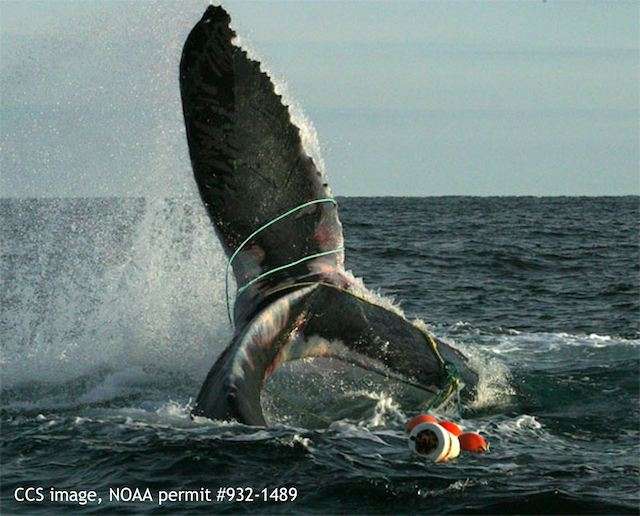Tanzania is Finally Protecting its 'Globally Unique' Endangered Rainforest After 40 Years of Research
After almost 40 years of research and rallying conservation efforts, this invaluable hotspot for biodiversity is finally being protected.

On Thanksgiving Day 30 years ago, a whale in distress was freed from a heavy, dragging mass of fishing gear in the icy waters of Provincetown Harbor. Nicknamed Ibis, the humpback was rescued by Massachusetts researchers from the Center for Coastal Studies who became the first group to successfully disentangle a free-swimming whale.
That day in 1984 was the founding spark for what became the Marine Animal Entanglement Response team (MAER). Since Ibis, the team has freed more than 200 marine animals from life threatening entanglements, including seals and sea turtles, and have developed unique techniques and tools to do the job.
After ten years MAER and CCS partnered with the National Marine Fisheries Service to form the Atlantic Large Whale Disentanglement Network, with trained and equipped responders located from the Bay of Fundy in Canada all the way down to Florida. They've also travelled overseas to train teams from Australia, Mexico, and South Africa, and hosted trainees from Argentina, Brazil, Canada, the Dominican Republic, Puerto Rico and Great Britain.
An ongoing study at the Center has analyzed the scars left on entangled humpback whales, and determined that an average of 12% of the population becomes entangled annually.
In a major new initiative the Center will collaborate with the International Whaling Commission to develop a worldwide network of professionally trained and equipped entanglement responders. According to the program's coordinator David Mattila, "So far the program has reached more than 500 scientists, conservationist and government representatives from over 20 countries, and has been highly commended by countries and NGOs from all points of view about whales and conservation."
The program will also ensure that disentanglement operations are conducted to the highest safety standards, minimizing risk of injury to both humans and animals.
While the rescue of individuals certainly aids species preservation and recovery, the best long-term solution to the marine animal entanglement problem is prevention. To that end, the Center continues to work with fisheries managers to explore technologies and techniques to reduce the frequency and impact of entanglement on marine animals.
If you see a live or dead marine animal entanglement off southern New England, please report to the MAER Hotline (1-800-900-3622) or hail the USCG on VHF 16.
Be the first to comment